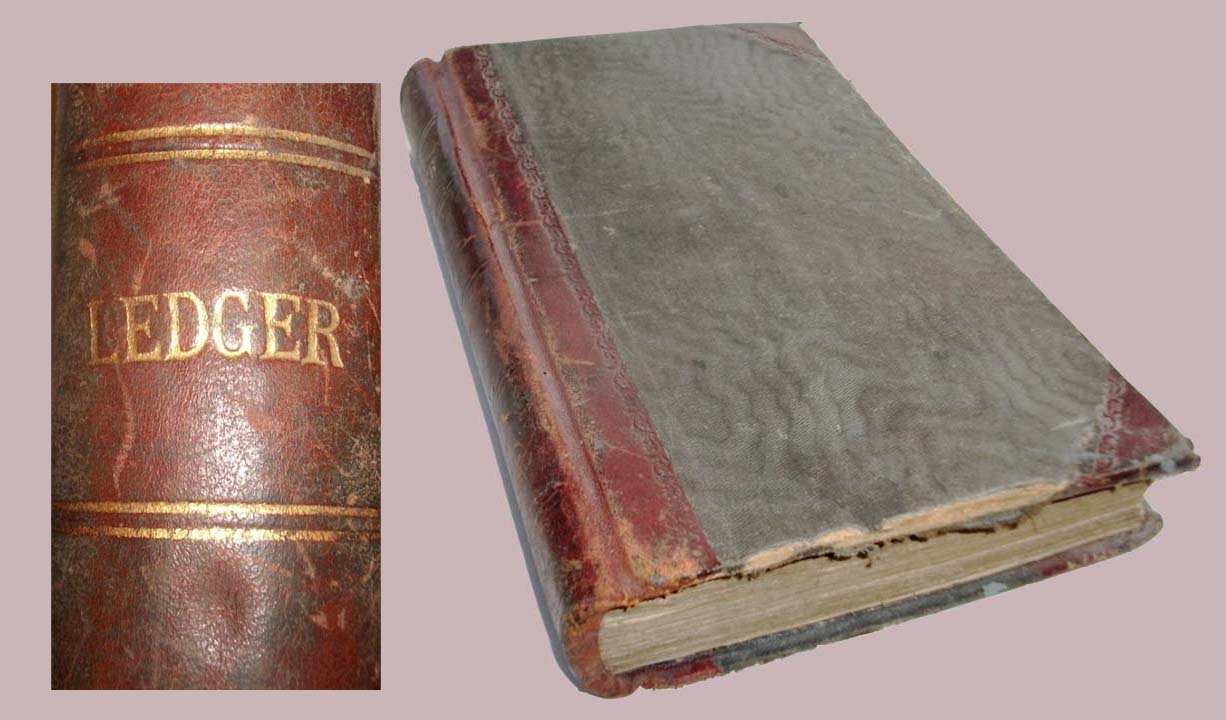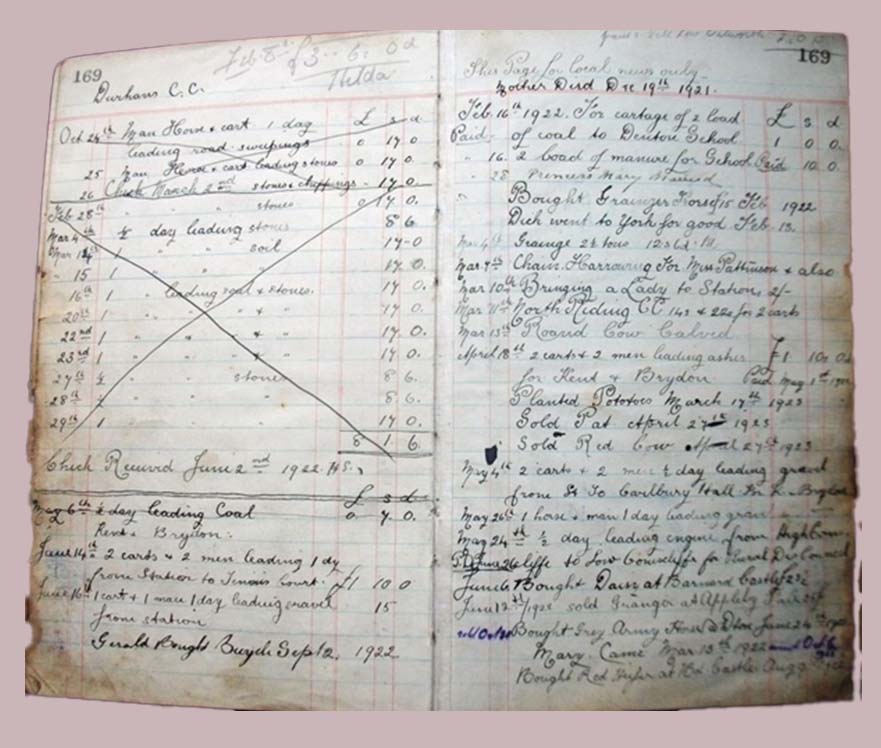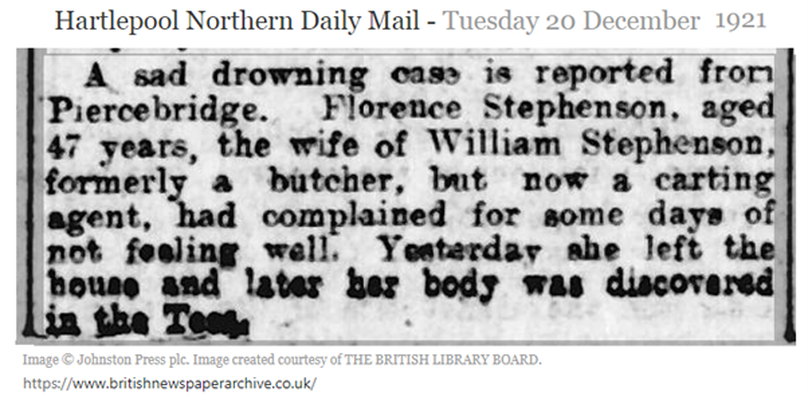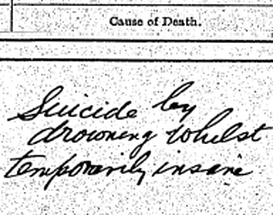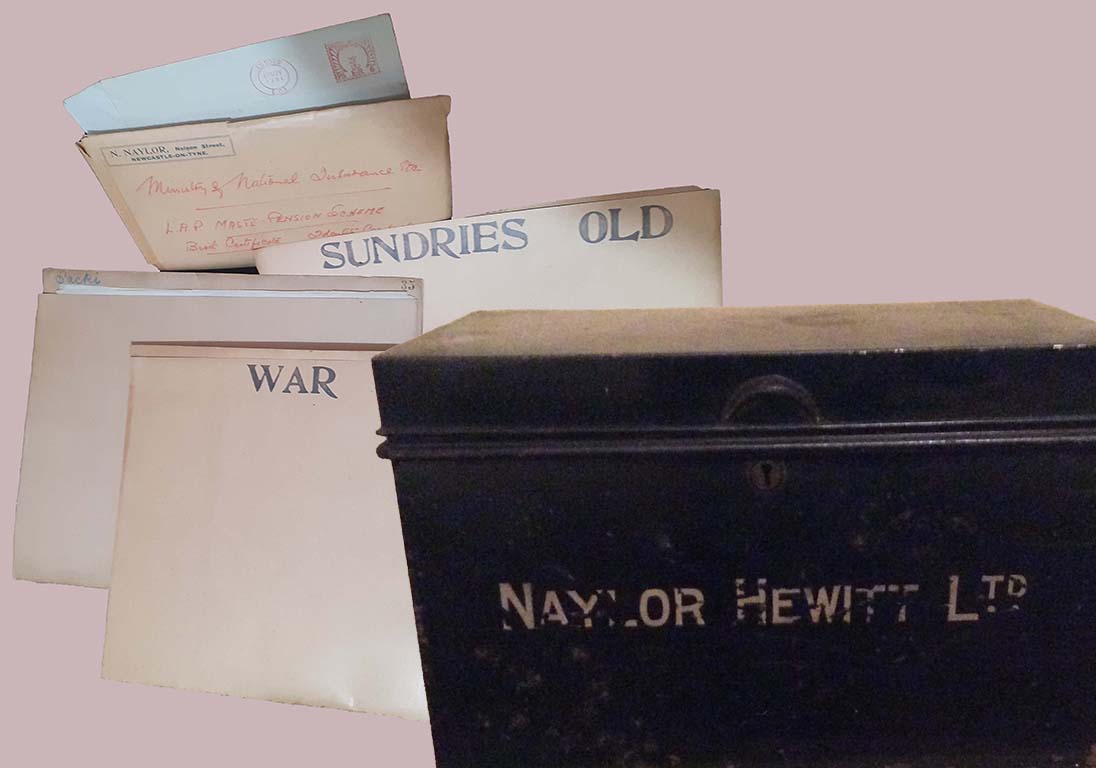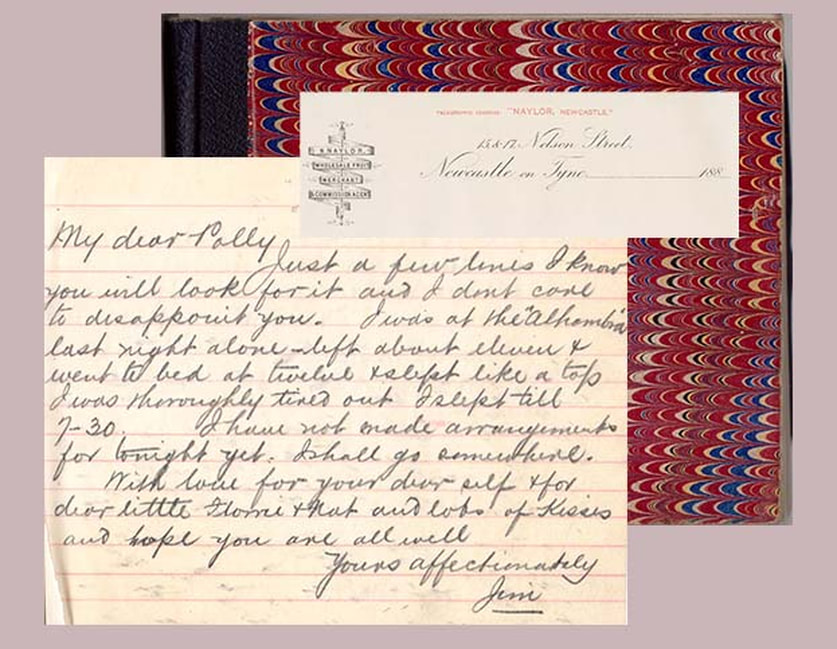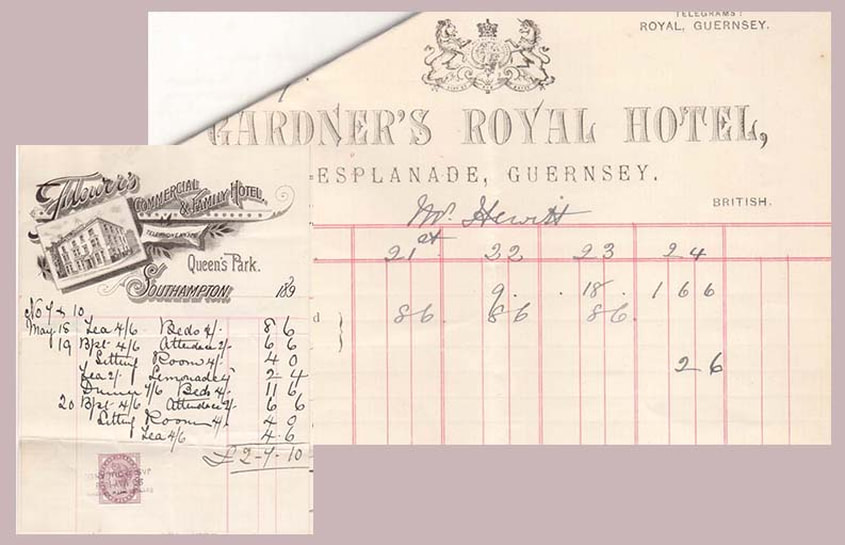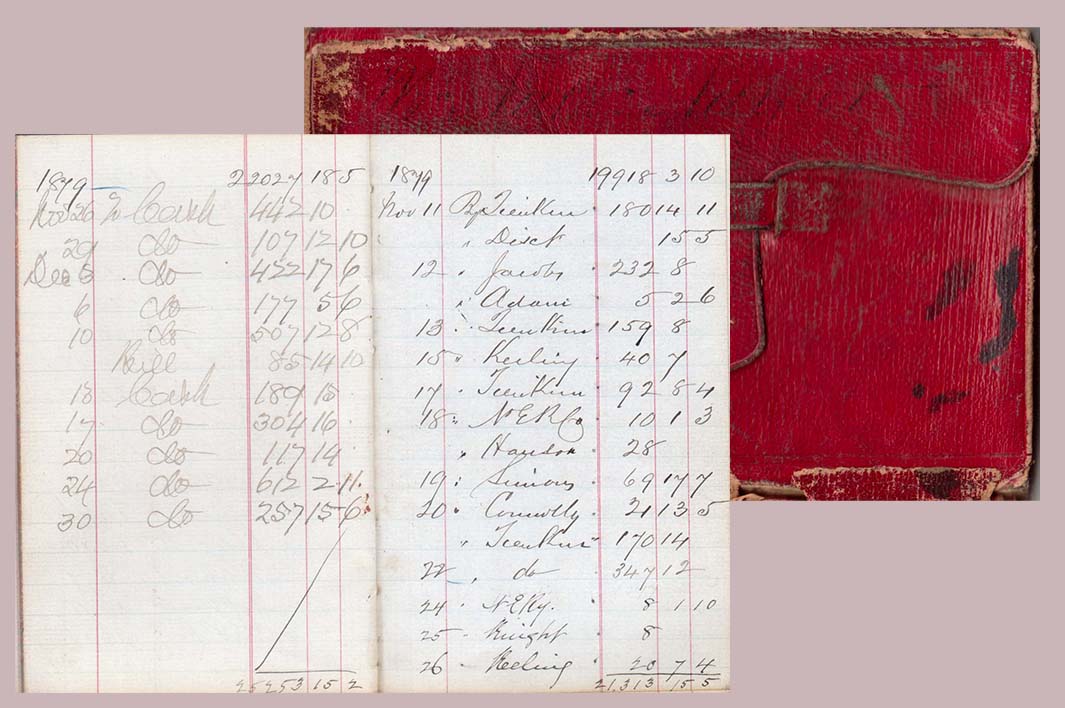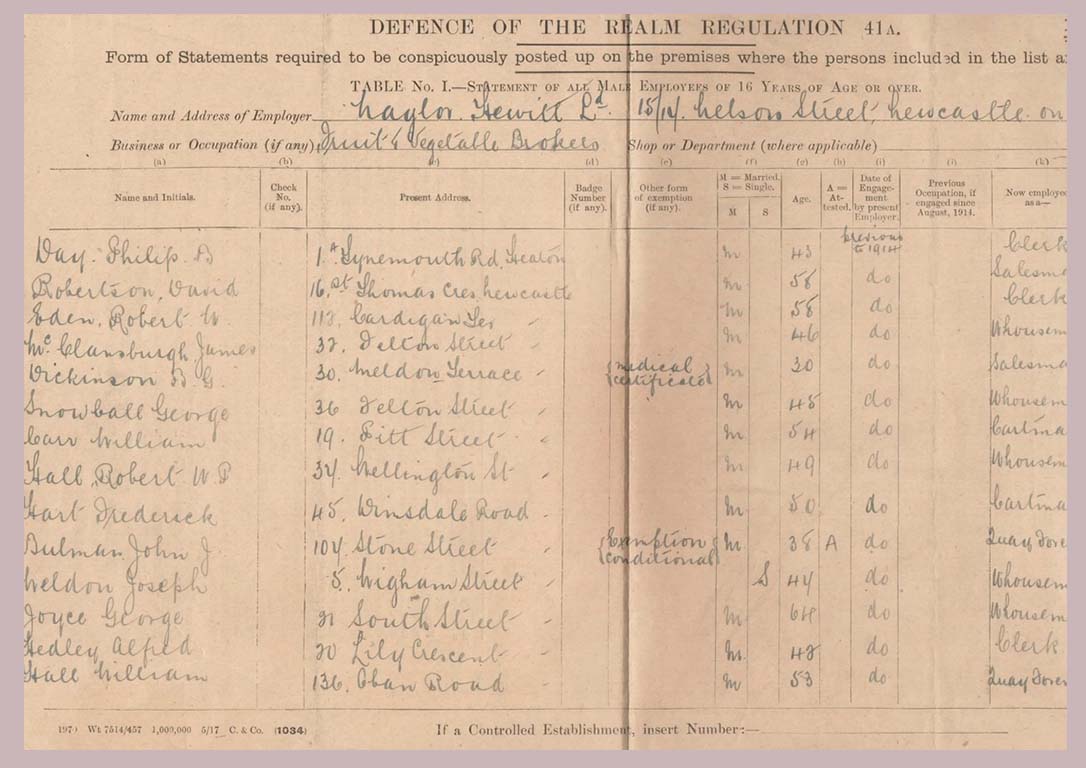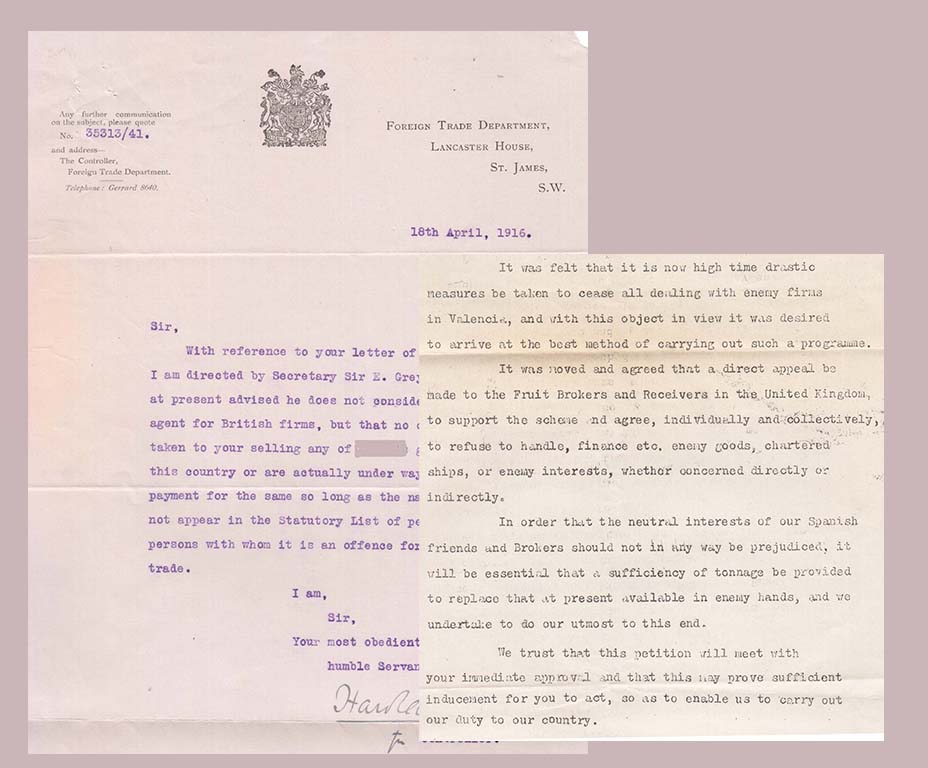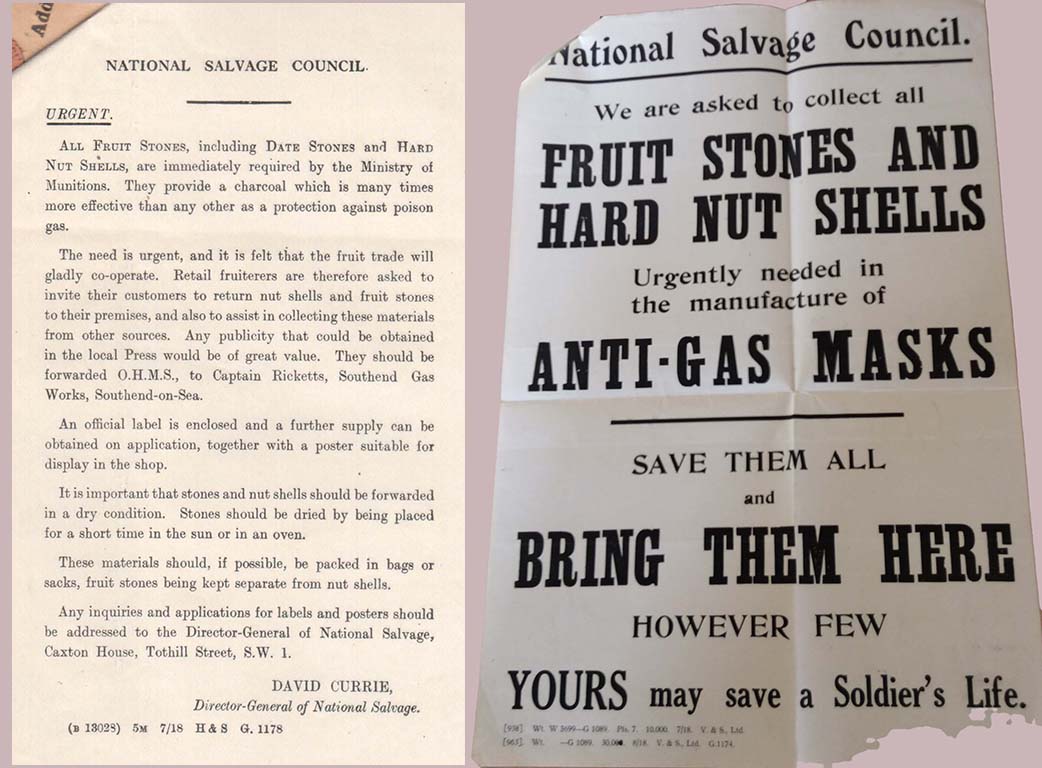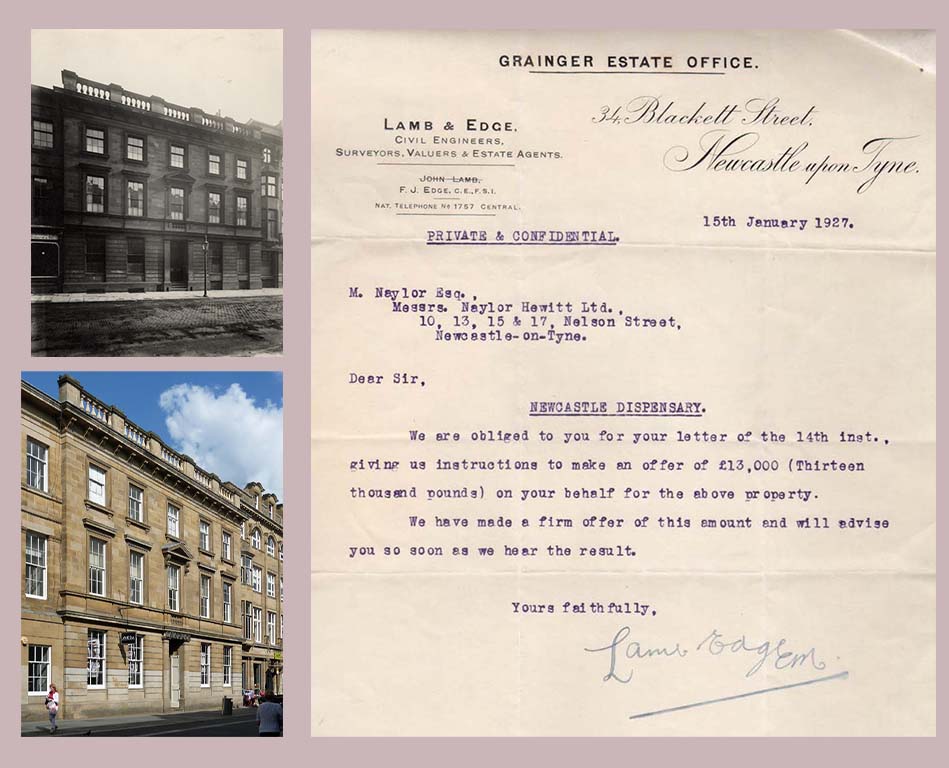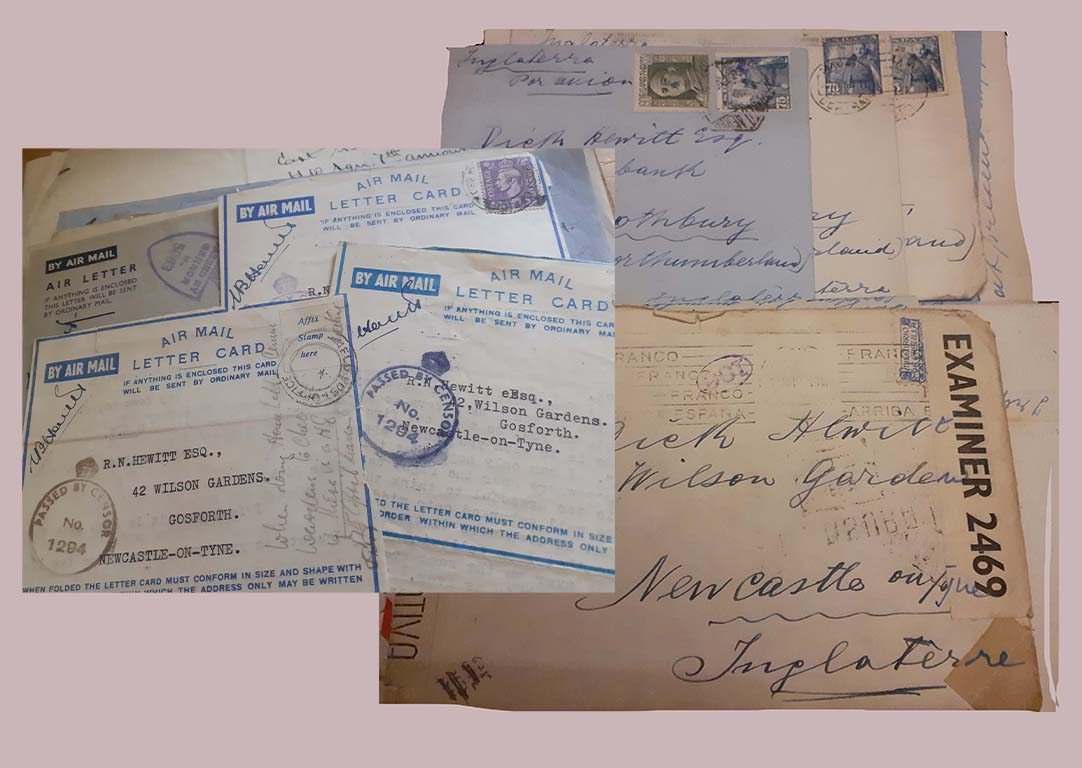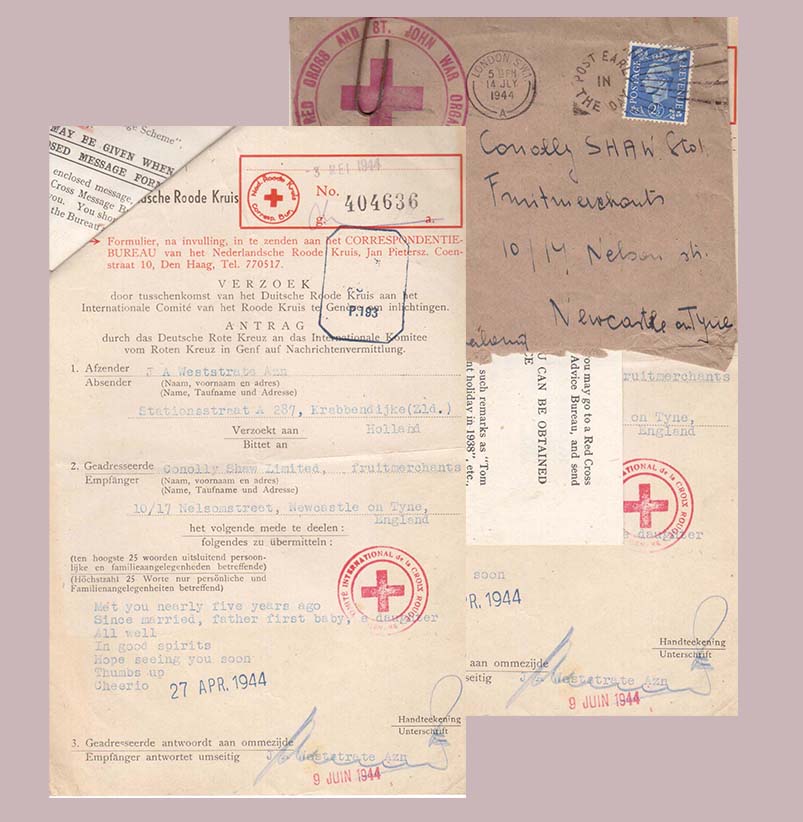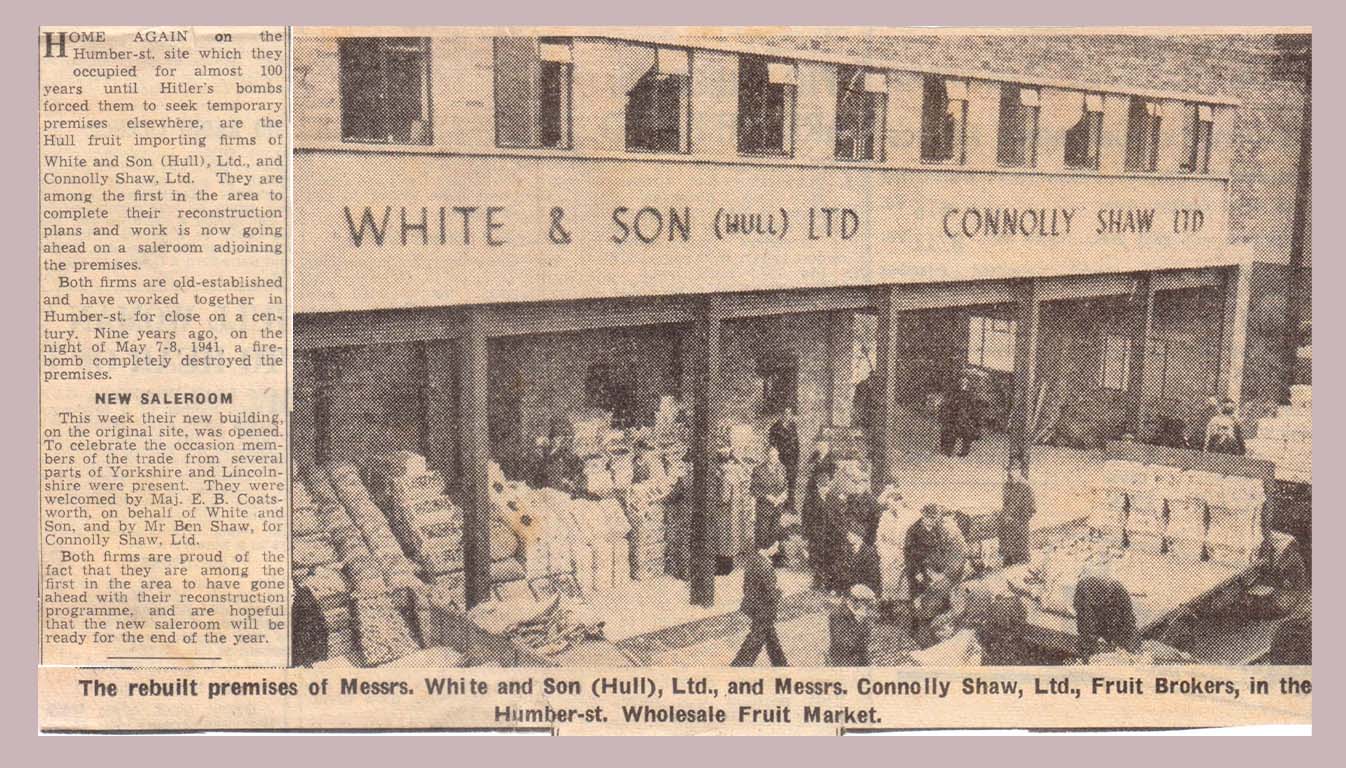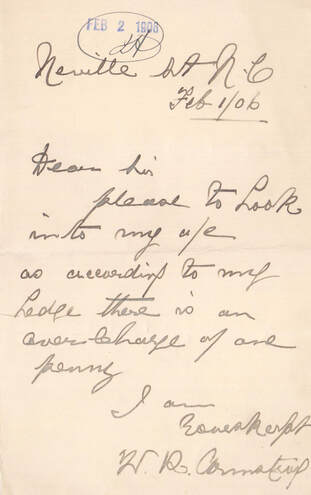The Forgotten Heroes of Family History - discover why business records make brilliant sources!25/1/2022 Old business records and account ledgers may not always be welcome reminders of times past for everyone, but for the historian, what's not to love? Sandwiched between the salaries, rent, and vehicle HP are the stories of people – business owners, their associates, employees, suppliers, customers, and even on occasion, the people who went before. Changes in the economic and political environment, social customs and logistics are reflected in numbers with notes pencilled in the margin. The history of land, buildings, streets, villages and cities lie buried behind the unwritten words on the page. Passport visas tell of exotic travel as do condolences written in foreign hands. The disruption caused by War – friend become foe, identity cards, letters and communications from far-flung places, hospital beds and the ‘Ministry’. Hidden amongst the mundane are snippets of daily family life, important dates and events. Business records really can be the forgotten heroes of family history. It was Susan Smith, a farmer and researcher from Darlington who, in telling the story of her findings amongst the pages of an old family ledger, reminded me of the rich pickings business accounts can be! First though, here is Susan’s story . “Mother Died Dec 19th 1921.”After my grandfather, George Herbert Stephenson, died in 1986 I inherited his old account books and papers which accumulated over a lifetime involved in haulage and farming in and around Piercebridge, County Durham. The biggest treasure of all was his earliest account ledger, covering the 1920’s period when the brothers were haulage contractors. As I run my fingers across the cover of this ledger I can feel the same bumps and grooves that my grandfather would have felt; the scuffs at the edges of the book cover, the lovely ornate embossing around the edges of the oxblood-coloured leather encasing the corners and spine. Its fusty smell betrays its age. His entries a tangible connection to those who went before. He would have opened this ledger every day to record the comings and goings of the business. Filling it with the social history we family history enthusiasts crave. Today, in my minds-eye I can see him sitting at his desk, pencil in hand and licking the point of the lead before writing an entry. The picture below is of the last pages in this ledger, entitled ‘This Page for local news only.’ The first entry in these pages at the top of page 169 simply states “Mother Died Dec 19th 1921“. I was hit with a wave of sadness upon reading this, how would my grandfather have been feeling when he sat to write those words? You see to me, this entry seemed devoid of feeling - just a statement of fact on a page amongst the other local news and business of the day, such as:-
Ends 'Personals' in Business RecordsBusiness records are often brimming with snippets recalling events in personal lives as well as charting the history of a company. Way back in April 2014, I delved into the company archives of Naylor Hewitt Ltd., later Connolly Shaw Fruit Brokers. Like Susan, amongst the ‘variegated’ selection of business papers in an old black tin box belonging to Richard (Dick) Hewitt my maternal grandfather, are carbon copies of family announcements. There are letters of congratulations on the birth of a child (himself in 1908) and letters of condolence in both English and Spanish on the sudden death of his mother in September 1960. Through the memories of those whose lives she touched, the letters provide insights into the character and personality of the lady under the big Edwardian hats! There are more arrivals, passings and ‘joinings together’ in faded fuzzy ink, typed on fragile tissue paper. From the births and marriage notices of his children to the death notice for his own relative named Florence. His aunt, Annie Florence (Florrie) Dryden - Benson nee Hewitt who died at Platts Lane, Hampstead in 1950. Florrie Hewitt and her brother Nat appear as ‘bairns’ in telegraphic messages from the 1890s. They were sent from their father James Hewitt whilst traveling on business visiting growers & suppliers. This note tells of the evening entertainments he enjoyed. A night out at the ‘Alhambra’, a theatre and music hall in Leicester Square deprived of its license in 1870 for presenting the ‘Can-Can’, too racy for Victorian sensitivities. When it opened in 1854 The Alhambra Theatre hosted one of the few bars to accept women without the escort of a man. Once described as the “greatest place of infamy in all London”, it had a reputation for banging nights out. The snippets of social history and private lives lie juxtaposed with prices of ‘New York Pippins’, ‘Duke of Wellington’s’, ‘Naples Lemons’ and broccoli. The names, Senior Garcia, Knill, White, Keeling and Bulman. ‘Five baskets of tomatoes’ and Fyffes who were ‘sending bananas tonight that are scarce and dear’ to arrive in Newcastle before breakfast. Hotel bills provide further evidence of James Hewitt’s travels. Tea, aerated water and lemonade suggest an abstemious lifestyle. Or, perhaps not wanting to pay London prices, he travelled with supplies tucked away in his luggage. The telegrams portray an efficient businessman who bestowed a good deal of love and a great many kisses on his family from a distance. His little red pocketbook from the 1870s records the trading with growers and wholesalers. Vegetables, fruit and flowers sourced from around the world were shipped into Newcastle by steamship and train. The cashbook from the 1880s reflects the changing face of logistics. Rent for stabling, clipping of horses and straw where there would be garaging, servicing and fuel for vehicles today. 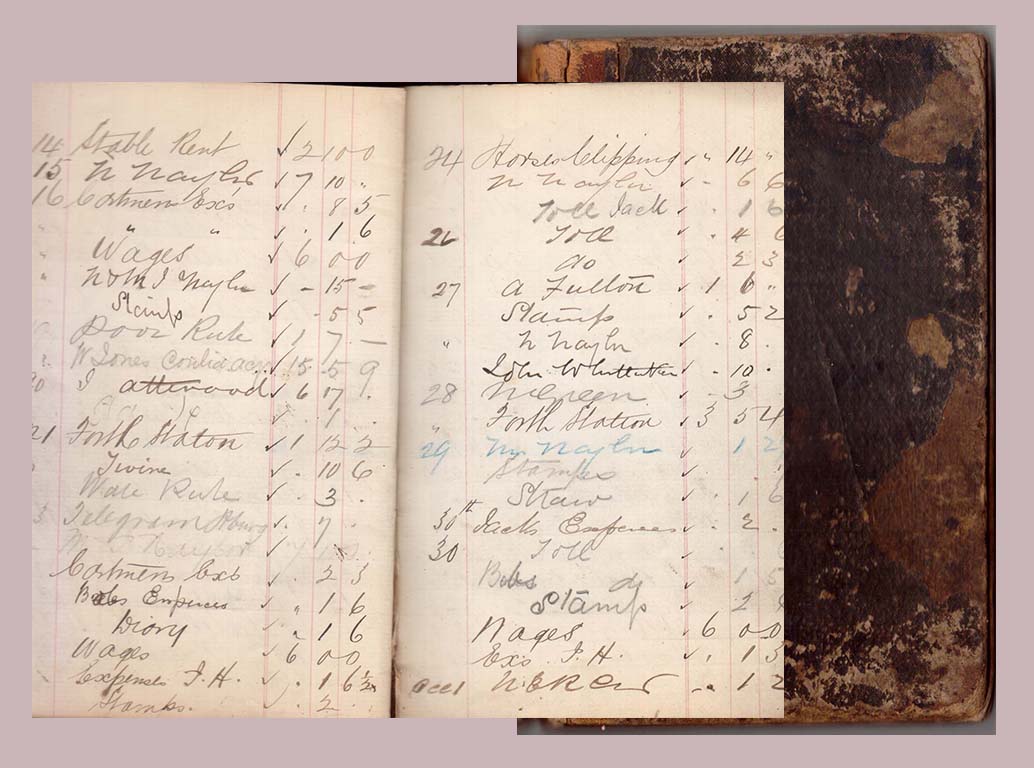 Purchase ledger for November 1877. Private Collection Purchase ledger for November 1877. Private Collection World War ITime passed and the ‘bairns’ joined the business. Then, in 1914, trade and associated transport were disrupted by War. Young men sent to the front, the losses, sometimes personal, of those who did not return were felt keenly at home. Names, addresses and ages of those who remained, listed and posted in clear public view by order of the government. The human side of the business on display. Trading restrictions enforced and friends mistakenly caught betwixt jealous informers and zealous bureaucracy. The folders of letters tell of loyalties and friendships forged during this period that lasted generations. Shortages and salvage incentives reflect the hardships and the horrors of war. The public urged to cut back; nothing was to be wasted. Even fruit stones were salvaged to combat poison gas at the front. The poster’s message is strong and clear. A ledger covering the period is yet to give up its secrets. To date, the contents remain hidden behind the security of a brass Brahma lock that has long since lost its key. The history of buildings and placesThe Dispensary, 14 Nelson Street, Newcastle-upon-TyneDocuments record post-War business expansion and a merger with Connolly Shaw Ltd. The acquisition in 1927 of the Old Dispensary at 14 Nelson Street in the heart of Newcastle’s iconic Grainger Town soon followed. It was a significant purchase of a building with human history at its heart. The history of the Dispensary, however, predates its time at 14 Nelson Street. The Dispensary was established in April 1777 and funded through subscriptions, gifts and legacies. Its first site was in The Side but in 1782 or 1783 it moved to Pilgrim Street where it remained until 1790. For the next fifty years, the Trustees leased a building in Low Friar Chare. At the expiry of the lease, the Dispensary moved to 14 Nelson Street, where it remained until 1928. Its final move was to 115 New Bridge Street which was still its home when it finally closed in 1976.[2] During the fifty years the Dispensary was located on Nelson Street, in ministering to the City's sick, it touched the lives of thousands of individuals. It witnessed the Cholera epidemic of 1853 and lost one of its own a decade later. Dr William Thomas Carr MRSA contracted a fever ‘in the course of his arduous and dangerous duties as a medical officer of the Dispensary’ and died on November 29th 1863. Today, all that remains of the building purpose-built to house the Dispensary in 1836, is the façade. It provides an elegant frontage to the Eldon Shopping Centre behind. The Fruit Exchange, Spitalfields, LondonIn 1929 Connolly Shaw Ltd was among the six founding members of the London Fruit Exchange in Spitalfields, London. Opening in 1929, when the volume of imported produce coming through the docks more than doubled in the ten years after the First World War, the mighty Fruit & Wool Exchange in Spitalfields was created to maintain London’s pre-eminence as a global distribution centre. The classical stone facade, closely resembling the design of Nicholas Hawksmoor’s Christ Church nearby, established it as a temple dedicated to fresh produce as fruits that were once unfamiliar, and fruits that were out of season, became available for the first time to the British people.[3] The exchange closed for business in 1991 and the building has been the subject of redevelopment in recent years. Its distinctive frontage at 1 - 10 Brushfield Street has, however, been retained. Another World WarThe expansion of the 20s was followed by the global depression of the 1930s. But there is little evidence retained from the latter period in the Black Box. Before heading towards, the next collection of documents bears testimony to the disruption of WW2. Letters from Spain with the stamps of Franco, Forces Airmail from the Egyptian desert, both franked by the Censor are filed alongside an unusual Red Cross Telegram. A telegram from Buenos Airies reading ‘Cordially with you on Victory Day’ and a newspaper cutting of rebuilding at Hull rounds off the second period of global conflict. There is also quantity of documents relating to the relocation of premises, markets and re-development of Newcastle City Centre and a mountain of records that could yield some interesting economic data. But the collection culminates with cards and letters bearing ‘best wishes for a long and happy retirement’. The final piece of correspondence is dated 25th June 1974. It is my grandfather’s resignation as Director of the company with effect from the end of the month. His black tin box contains 100 years of history of the fruit trade and encompasses three generations of the same family. Skimming through the contents is a vibrant journey alongside interesting people and thought-provoking places. I feel I now know them a bit better for it, but I can’t help the odd pang of nostalgia for a past I never knew! A wee bit of fun to endI couldn't help but smile when I found this note dated 2 Feb 1906 regarding a one penny overcharge. A reminder of the old adage, 'take care of the pennies and the pounds take care of themselves'. But as it was kept, it clearly amused my grandfather too! Footnotes[1] The Lost Alhambra, Leicester Square https://www.thelostalhambra.co.uk/ [2] The National Archives Kew, https://discovery.nationalarchives.gov.uk/details/r/8e55bb34-bcea-498f-8a47-7f9644c682b1 (Tyne and Wear Archives catalogue is unavailable at the time of writing due to essential maintenance.) [3] Spitalfields Life ‘So Long, Spitalfields Fruit & Wool Exchange’ https://spitalfieldslife.com/2012/10/11/so-long-spitalfields-fruit-wool-exchange/ Links to further informationThe AlhambraMemoirs of a Metro Girl. The lost Moorish palace of showbiz and sin: The story of Leicester Square’s Alhambra https://memoirsofametrogirl.com/2021/05/05/alhambra-leicester-square-history-victorian-theatre/ Theatres Trust Database, the Alhambra ttps://database.theatrestrust.org.uk/resources/theatres/show/3263-alhambra-theatre-london Cinema Treasures, The Alhambra http://cinematreasures.org/theaters/30493 The Old Dispensary & Newcastle’s Grainger TownHistoric England, 14 Nelson Street https://historicengland.org.uk/listing/the-list/list-entry/1024812?section=official-listing English Heritage, Newcastle's Grainger Town An Urban Renaissance, London, 2003. (84 page pdf downloadable publication about the history of Grainger Town and recent conservation project.) https://historicengland.org.uk/images-books/publications/newcastles-grainger-town/newcastles-grainger-town/ The London Fruit and Wool ExchangeSpitalfields Life, At The Fruit & Wool Exchange, 1937
https://spitalfieldslife.com/2020/01/11/at-the-fruit-wool-exchange-1937-x/ (Some wonderful articles on this website!)
0 Comments
Leave a Reply. |
AuthorSusie Douglas Archives
August 2022
Categories |
Copyright © 2013 Borders Ancestry
Borders Ancestry is registered with the Information Commissioner's Office No ZA226102 https://ico.org.uk. Read our Privacy Policy
